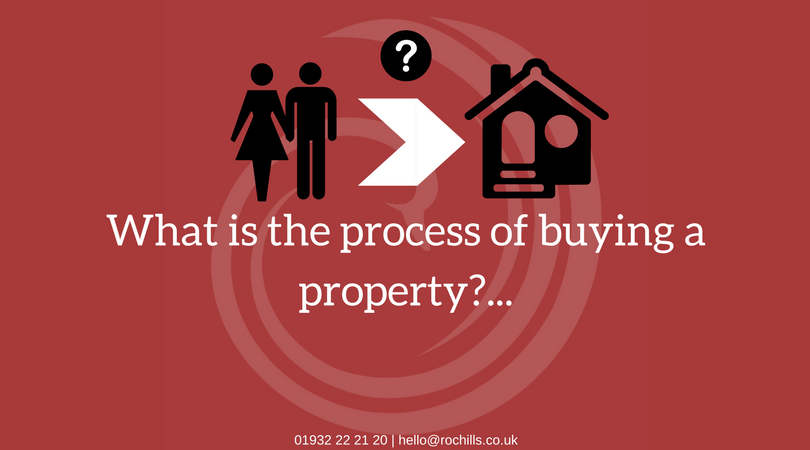Buying your first home can be daunting. The decisions you make along the way could save money or cost more money. Here’s a step by step guide to buying a home.
Decide if buying a home is for you…
Even though 86% of people in the UK want to own their home, it’s not for everybody– some people end up with big regrets.
There are a number of things you need to think about before setting off on your home hunting quest – not least whether you can actually afford it.
If you already own, decide if you should sell first…
It can be dangerous in a rising market, but there are upsides. In particular, you will be able to pounce quickly when you do find the home of your dreams, and you won’t be trapped in a housing chain.
Your budget…
How much do you want to spend? This might be dependent on how much of a deposit you can get together.
Don’t forget the variety of hidden costs of buying a home. These can put an extra 15% on the cost of your home – more if you are doing serious building or redecoration work.
Get your finances in place…
Calculte how much of a deposit for the mortgage you can get together. Think about savings, the “bank of mom and dad”, the “bank of Granny and Grandpa” and how much you would get if you put your current home on the market and paid off your deposit. If you have any savings on long term deposit that you plan to use, cash them in.
While you can’t get a mortgage before you buy, you can get a mortgage agreement in principle which will put you in a stronger position.
A mortgage broker or financial advisor can be particularly helpful if you would like advice on mortgages, to scan the full range of mortgages in the market or if you have special circumstances such as being self-employed.
Decide where you want to live…
This is a very significant decision – get it wrong and you will either be unhappy with where you live, or face the costs of moving again. Do your research thoroughly.
Choose a property…
Once you have settled on the area you want to move to, you should start researching the properties thoroughly so you really get to know the local market well.
You need to visit as many properties as possible, and make sure they are no hidden surprises.
Make sure you understand whether the property is freehold or leasehold, and that it is not on a short lease if it is leasehold.
Make an offer…
Make sure you are in the strongest possible position as a buyer.
Decide how much you want to offer, including for fixtures and fittings.
Make the offer to the estate agent.
You might be asked to pay a small holding deposit of £500 or £1000 to show you are serious. It will be repaid if the sale falls through.
Hopefully your offer will be accepted by the vendor (seller).
Get a mortgage in place…
You should have your finances in place as much as possible before making any offer. You now just need to go back to your mortgage lender with the agreed offer and complete the process.
If you haven’t got your finances in place, you must now scramble to do so as quickly as possible, before the buyer loses patience.
Don’t forget, you need to also have funds to pay stamp duty, which can add up to 7% of the cost of the property.
You will need to get the lender to make you a formal mortgage offer before you can exchange contracts.
Instruct a solicitor or conveyancer.
Once you have agreed an offer on your house, you need to get a solicitor or conveyancer to handle the legal work to transfer ownership of the property to you.
Your mortgage company might require you to go with one that is on their panel, which might make the decision for you. Don’t necessarily go with one suggested by the estate agent.
The solicitor or conveyancer will do the searches, such as with the local authority and Environment Agency, to ensure there are not any major problems with the property.
If you are feeling confident, it is sometimes possible to save money by doing the conveyancing yourself.
Decide if you want a survey on the property you’re buying…
Your mortgage lender will require a valuation by a surveyor, to ensure that the property is a good enough to lend against. This is not a proper survey, and will only look very superficially at the property, if at all.
You can usually either get the valuation upgraded to a full survey, or you can commission a separate survey. This should tell you everything you need to know about the property, and alert you to any potential problems you will face once you move in. Unless you are very experienced with property, it is usually worth getting a survey done.
Arrange a deposit…
Before you can exchange contracts you need to arrange a deposit of 10% of the sale price of the property, and give it to your solicitor or conveyancer.
You should either have the 10% deposit from the deposit you have arranged for the whole property, or might be able to raise it from the sale of your existing home.
Exchange of contracts…
When you exchange contracts with the seller you become legally committed to buying the property – and they are legally committed to selling it to you.
If you pull out after this without due reason, your 10% deposit can be forfeit.
You should only exchange contracts after you have received the surveyors report, and any necessary action has been taken.
Before you exchange contracts, you need to agree a completion date with the seller, this us usually four weeks after the exchange.
You can only exchange contracts after the solicitor/conveyancer is satisfied with the searches, a formal mortgage offer has been received, and arrangements made for the 10% deposit.
You need to ensure that you take out buildings insurance for the property from the date of exchange, as you are responsible for it from then on. Indeed, it is usually a condition of the mortgage that you have buildings insurance in place.
Final arrangements…
You need to make arrangements for the supply of utilities such as electricity, gas, water and telephone service, and that the seller has got readings made. Often, it is easiest simply to change the account name for the existing suppliers to the property, rather than change suppliers, which you can do later.
The legal team will inform the land registry that they are in the process of transferring ownership of your property.
Your legal team should also be liaising with the lender to ensure the money will be ready for completion. You need to ensure that your deposit is ready, and normally you will pay that to your conveyancer before completion.
Completion
Completion is when you pay for the property and take ownership of it, and takes place at a certain time of day.
On completion, the money is transferred and the deeds of the property are transferred, between each side’s conveyancer.
Take ownership of your new home…
The seller leaves the property by the time of completion, and you should then be able to collect the keys which is normally from the estate agent.
You are now free to move in, or if you are doing any building work before hand, the workmen can now start.
You will need to make normal administrative arrangements for getting permission for parking for delivery vans etc.
Stamp duty, settling with the solicitor and conveyancer…
After completion, your solicitor or conveyancer will send you an account, covering all their costs and disbursements, as well as the purchase price of the house and stamp duty.
Your solicitor or conveyancer will normally pay the stamp duty for you, and ensure that the change of ownership is registered with the land registry. There may be a small refund due to you if the surveyor has overestimated the costs.
For more advice or information call us on 01932 22 21 20 or visit our Walton on Thames Property community group on Facebook or subscribe to our YouTube channel for more tips like this.




